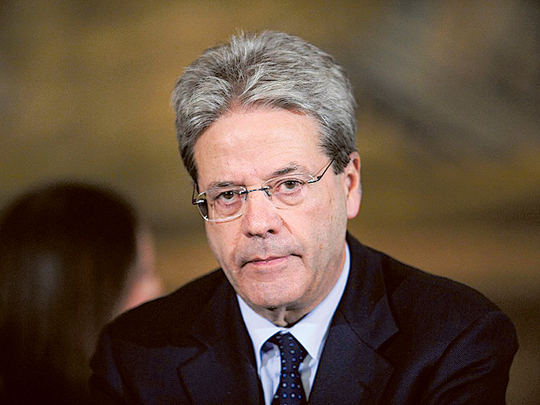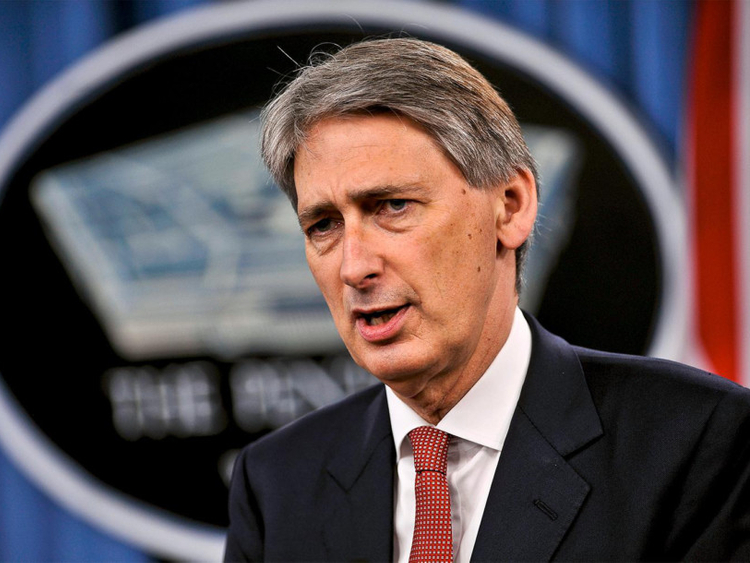
Italy and the United Kingdom have two very different views of Europe. While the UK holds the single market as its main focus, Italy’s position is inspired by the vision of a federal European Union and ever-closer integration, both economically and politically.
Notwithstanding different goals and outlooks, over the years, Italy and the UK have promoted peace, freedom and human rights — the values on which the European project is built. The two countries have worked together to ensure greater security and prosperity to the continent. The European Union that we have today was built with the contribution of all member states. Italy, as a founding member, was a leading actor in all of the crucial steps in the construction of the EU, while the UK played a key role in shaping it, particularly in relation to the creation of the single market and supporting enlargement.
And today, Italy and the UK agree on the need for deep EU reform, simplifying its functioning, its procedures and its rules.
The time has come to equip the EU with policies and tools better suited to new international challenges. There is need to encourage a competitive economy, to promote greater employment and to fully exploit the potential of the single market — not just in physical goods, but in services and digital goods. The EU should set a target to reduce the overall regulatory burden on businesses. But more broadly, there is need for a better EU to find the right long-term policy response to migration, to bring security and stability to neighbourhoods, to conclude successful free trade negotiations with the US and to rebuild trust between EU institutions and European citizens.
Italy and the UK both believe they can work together on a EU reform package that deals with specific issues such as the role of national parliaments, competitiveness, economic governance and welfare, in order to make the EU simpler, more efficient and less bureaucratic. This renegotiation, prompted by the UK reform agenda, is an opportunity to create a more competitive, democratically accountable and flexible EU. The Italian government believes that Eurozone member states are entitled to go ahead with greater integration, as a way of regaining their growth potential and reconstituting the political credibility of Europe. This can be undertaken in a way that recognises that there is more than one currency in use in the EU and has full regard for the rights and interests of non-euro member states, in particular safeguarding the integrity of the single market, which is a shared asset of the whole EU.
The UK did not join the common currency and has no intention of doing so in the foreseeable future. However, stronger Eurozone governance to ensure a successful euro in the long term, with the right safeguards for the countries outside the single currency, would be in everyone’s interests. It would support the EU’s growth trajectory through macroeconomic stability and by improving the competitiveness of Europe overall.
More generally, Italy and the UK believe that the way to reconcile different visions of the EU among the member states is to embrace a new model of its functioning, based on the flexibility to manage greater or lesser integration. The possibility of differing levels of EU integration has long been debated when it comes to the future of the EU.
In its June 2014 meeting, the European Council agreed that: “The concept of ever-closer union allows for different paths of integration for different countries, allowing those that want to deepen integration to move ahead, while respecting the wish of those who do not wish to deepen any further.”
This approach would serve the interests of a EU that may grow to more than 30 member states. It would allow all countries to find a suitable degree of integration within the EU, according to the will of their citizens.
Italy and the UK may find that sometimes they will have differing arrangements, but this perspective makes it all the more important to make the most of the willingness on each side to work together to find a common position that takes into account the interests and visions of both the countries. A successful EU will be one that can combine these different visions of Europe and embrace that diversity. There is need for a flexible, reformed EU in which different paths of integration can coexist successfully to build a Europe fit for the future.
This is what we are working together to achieve.
— Telegraph Group Limited, London, 2015
Philip Hammond is British Foreign Secretary and Paolo Gentiloni is the Italian Foreign Minister.










